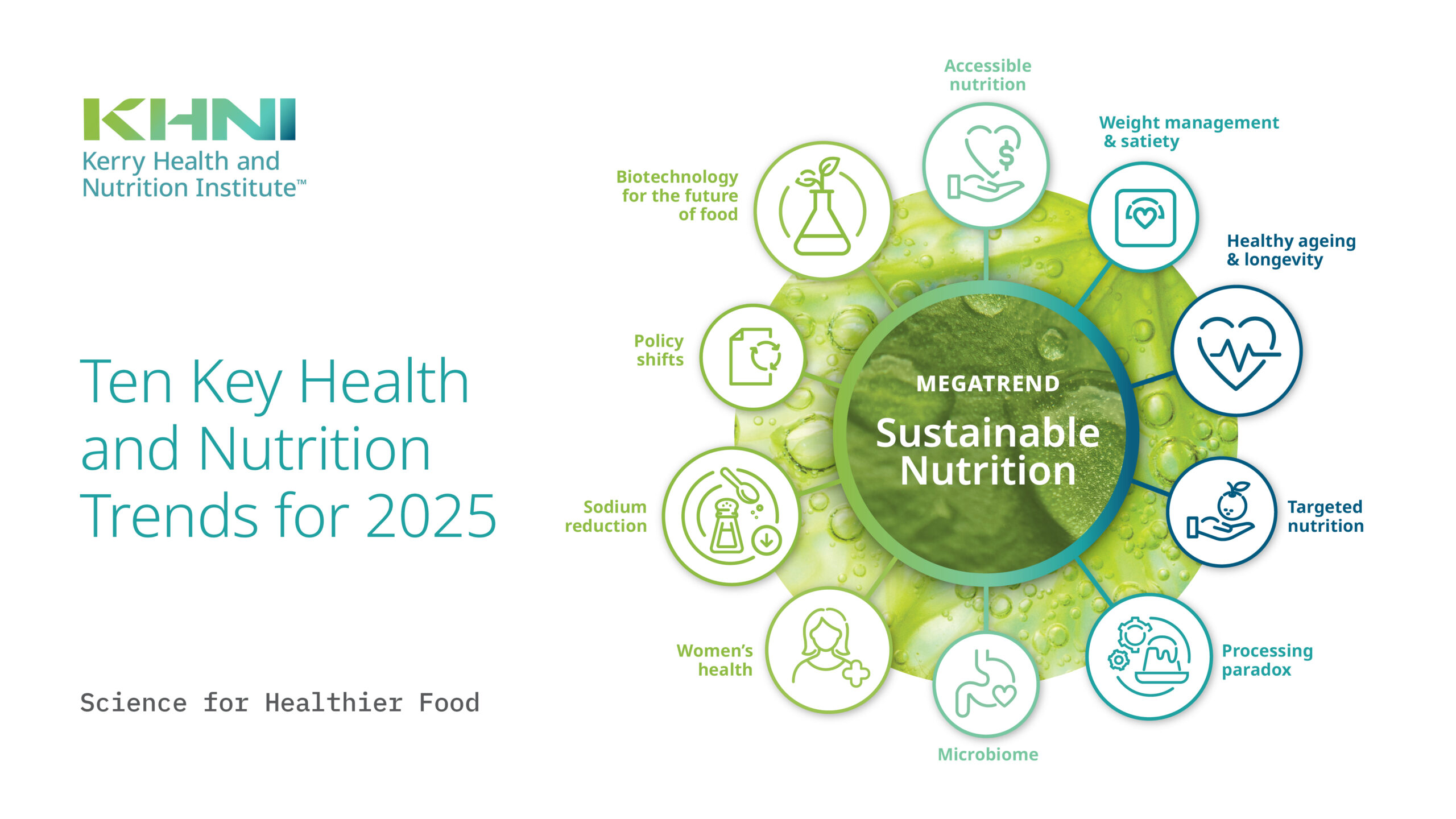Kerry Health and Nutrition Institute (KHNI) has published its Ten Key Heath and Nutrition Trends for 2025 report. Now in its seventh edition, Health & Nutrition Trends is a collection of current advancements in technology, research, product development, and consumer behavior patterns shaping the future of food. With insights from more than 100 nutritionists, food scientists, sustainability leaders, regulatory specialists, and other scientific experts, the 2025 open access report edition previews the scientific developments that will play influential roles in nutrition innovation in the upcoming year.
Trends for 2025
KHNI’s Dr. Aoife Marie Murphy commented on the reports findings: “This report shows us that areas like healthy aging, reducing sodium and understanding the microbiome are all areas where science is evolving. These trends can inform new product innovation, delivering the health benefits that consumers are looking for, while also considering taste, affordability and sustainability.”
Key upcoming health and nutrition trends for 2025—which are all influenced by the long-term mega-trend of Sustainable Nutrition, are:
- Accessible Nutrition: Securing affordable, nutritious food is available to everyone, regardless of income or location. Focus on affordable, nutrient-dense ingredients to combat hunger.
- Weight Management & Satiety: Rising demand for satiety-boosting foods and the increase of GLP-1 receptor agonist medications are driving innovation for weight management.
- Healthy Aging & Longevity: Strengthening longevity and quality of life for ageing adults through distinct nutrition formulations that prioritize taste.
- Targeted Nutrition: Custom dietary solutions addressing unique health needs, leveraging AI and biological data for tailored nutrition plans.
- Processing Paradox: Processed foods can enable safe, sustainable, convenient foods, however nutritional quality must be prioritized to address public health concerns.
- Microbiome: Focusing on the microbiome can unlock benefits beyond digestive health. Microbiome modulators such as diet, probiotics, postbiotics and more offer opportunities for product innovation.
- Women’s Health: Addressing the specific nutritional needs across women’s life stages, with a focus on hormonal balance and mental wellbeing through specific ingredients.
- Sodium Reduction: Increasing global regulatory pressure to reduce salt has encouraged innovation in taste modulation and customized solutions.
- Policy Shifts: Stricter regulations like front-of-pack labelling and taxes on unhealthy foods are pushing the food industry towards healthier and more sustainable practices.
- Biotechnology for the Future of Food: Advancements in microbiology, bioprocessing, and artificial intelligence are transforming how food is produced, making it smarter, more efficient and more sustainable.
Additional information regarding the report and its findings are available here.
